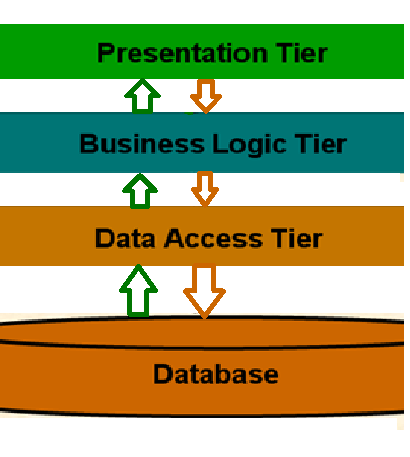Controllers and Action Methods in ASP.NET MVC Applications
Controllers and Action Methods in ASP.NET MVC
The Controllers Folder ASP.NET MVC:
The Controllers Folder contains the controller classes
responsible for handling user input and responses.
MVC requires the name of all controllers to end with
"Controller".
In our example,
Visual Web Developer has created the following files:
HomeController.cs
(for the Home and about pages) and AccountController.cs
MVC was one of the seminal insights in the early development
of graphical user interfaces, and one of the first approaches to describe and
implement software constructs in terms of their responsibilities.
The ASP.NET MVC framework maps URLs to classes that are
referred to as controllers.
Controllers process incoming requests, handle user
input and interactions, and execute appropriate application logic. A controller
class typically calls a separate view component to generate the HTML markup for
the request.
The base class for all controllers is the ControllerBase
class, which provides general MVC handling. The Controller class inherits from
ControllerBase and is the default implement of a controller. The Controller
class is responsible for the following processing stages:
Locating the appropriate action method to call and
validating that it can be called.
Getting the values to use as the action method's arguments.
Handling all errors that might occur during the execution of
the action method.
Providing the default WebFormViewEngine class for rendering
ASP.NET page types (views).
MVC Controller by Wikipedia:
Trygve Reenskaug introduced MVC into Smalltalk-76 while
visiting Xerox Parc in the 1970s. In the 1980s, Jim Althoff and others
implemented a version of MVC for the Smalltalk-80 class library. It was only
later, in a 1988 article in The Journal of Object Technology, that MVC was expressed
as a general concept.
The MVC pattern has subsequently evolved; giving rise to
variants such as HMVC, MVA, MVP, MVVM, and others that adapted Model View
Controller to different contexts.
- Hierarchical model–view–controller
- Model–view–adapter
- Model–view–presenter
- Model View ViewModel
- Observer pattern
- Presentation–abstraction–control
- Three-tier architecture




Comments
Post a Comment